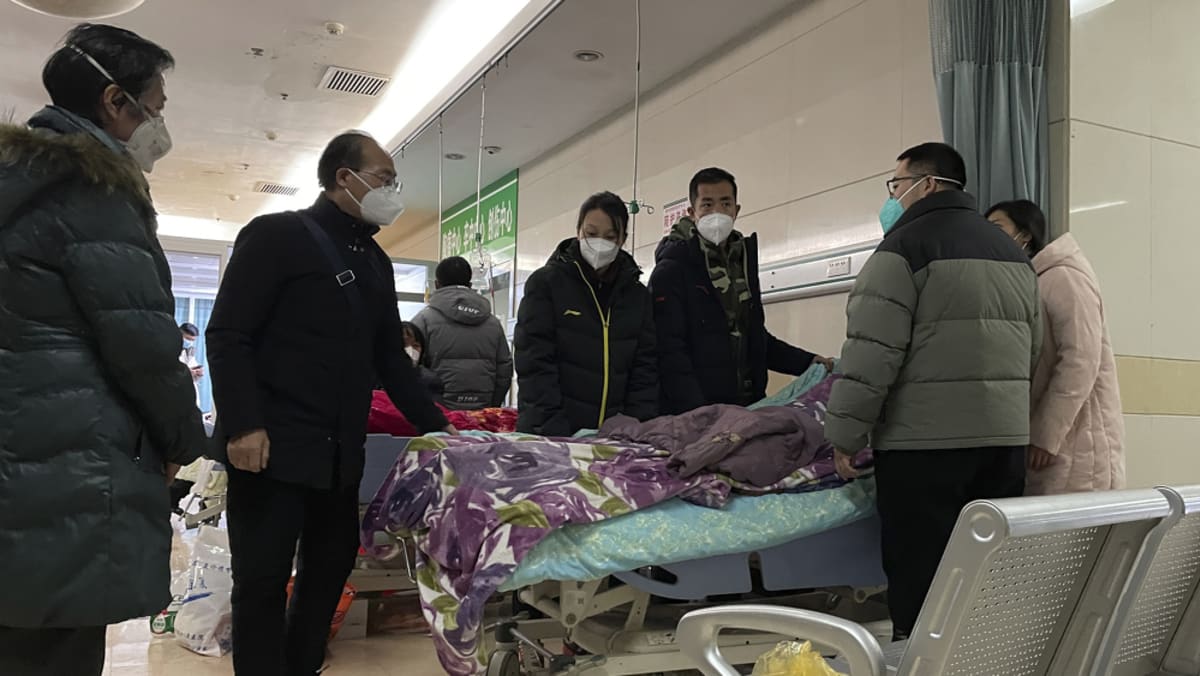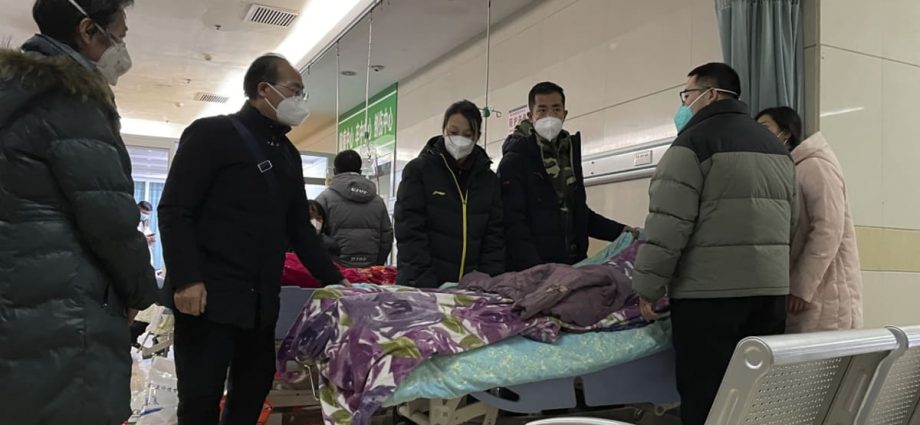
At a crematorium in Gaobeidian, about 20km south of Zhuozhou, the body of one 82-year-old woman was brought from Beijing, a two-hour drive, because funeral homes in China’s capital were packed, according to the woman’s grandson, Liang.
“They said we’d have to wait for 10 days,” Liang said, giving only his surname because of the sensitivity of the situation.
Liang’s grandmother had been unvaccinated, Liang added, when she came down with coronavirus symptoms, and had spent her final days hooked to a respirator in a Beijing ICU.
Over two hours at the Gaobeidian crematorium on Thursday, AP journalists observed three ambulances and two vans unload bodies. A hundred or so people huddled in groups, some in traditional white Chinese mourning attire. They burned funeral paper and set off fireworks.
“There’s been a lot!” a worker said when asked about the number of COVID deaths, before funeral director Ma Xiaowei stepped in and brought the journalists to meet a local government official.
As the official listened in, Ma confirmed there were more cremations, but said he didn’t know if COVID-19 was involved. He blamed the extra deaths on the arrival of winter.
“Every year during this season, there’s more,” Ma said. “The pandemic hasn’t really shown up” in the death toll, he said, as the official listened and nodded.
Even as anecdotal evidence and modelling suggest large numbers of people are getting infected and dying, some Hebei officials deny the virus has had much impact.
“There’s no so-called explosion in cases, it’s all under control,” said Wang Ping, the administrative manager of Gaobeidian Hospital, speaking by the hospital’s main gate. “There’s been a slight decline in patients.”
Wang said only a sixth of the hospital’s 600 beds were occupied, but refused to allow AP journalists to enter. Two ambulances came to the hospital during the half-hour AP journalists were present, and a patient’s relative told the AP they were turned away from Gaobeidian’s emergency ward because it was full.
Thirty kilometres south in the town of Baigou, emergency ward doctor Sun Yana was candid, even as local officials listened in.
“There are more people with fevers, the number of patients has indeed increased,” Sun said. She hesitated, then added, “I can’t say whether I’ve become even busier or not. Our emergency department has always been busy.”
The Baigou New Area Aerospace Hospital was quiet and orderly, with empty beds and short lines as nurses sprayed disinfectant. COVID-19 patients are separated from others, staff said, to prevent cross-infection. But they added that serious cases are being directed to hospitals in bigger cities, because of limited medical equipment.
The lack of ICU capacity in Baigou, which has about 60,000 residents, reflects a nationwide problem. Experts say medical resources in China’s villages and towns, home to about 500 million of China’s 1.4 billion people, lag far behind those of big cities such as Beijing and Shanghai. Some counties lack a single ICU bed.

